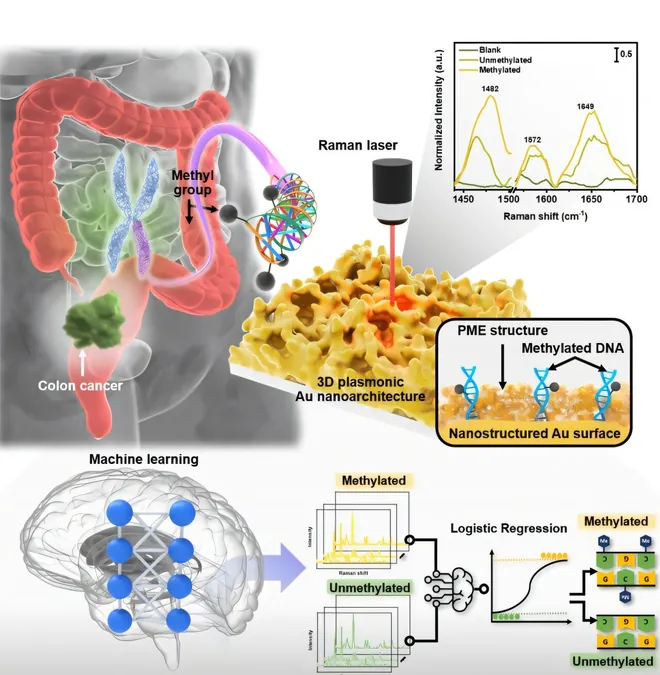
The Most Harmful Habit to Ditch If You Suffer from IBS – Experts Weigh In!
2024-09-21
Author: Wei Ling
Understanding IBS
First, what exactly is IBS? It’s a chronic gastrointestinal disorder affecting millions, marked by a constellation of symptoms such as cramping, bloating, gas, and various bowel irregularities, from diarrhea to constipation. Unlike inflammatory bowel diseases like Crohn’s or ulcerative colitis, IBS does not result in visible intestinal damage, complicating diagnosis and treatment. The factors believed to underlie IBS are complex and multifaceted, encompassing gut-brain interactions, motility issues, dietary sensitivities, stress, and microbiome imbalances. Diet plays a significant role in managing IBS; however, it is not the sole influencer. Stress and sleep disturbances also contribute to symptom flare-ups, making a holistic approach essential for improvement.
The #1 Habit to Break
One of the most common errors that individuals with IBS make is excessive dietary restriction. While it's natural to want to avoid trigger foods, taking this to the extreme can backfire. Overly eliminating foods not only deprives your gut of necessary nutrients but may also heighten your gut's sensitivity over time. This restrictive behavior can contribute to anxiety surrounding food choices—a major problem since stress is a known IBS trigger. As a result, some might develop orthorexia, an unhealthy fixation on eating only “clean” foods. This mentality further complicates their relationship with food, prompting nutrient deficiencies and potentially worsening IBS symptoms. Dietitian Bonnie Roney advises a healthier approach: "The goal should be to liberalize your diet as much as possible while avoiding or limiting your unique food triggers." A structured elimination diet can be effective, where specific items are temporarily removed before being gradually reintroduced to identify true triggers. This strategy can keep your meals diverse while still managing symptoms.
The Importance of Fiber
An essential aspect of maintaining digestive health is fiber—both its quantity and type can influence IBS symptoms. For instance, while insoluble fiber, found in foods like whole grains, may aggravate symptoms, soluble fiber—from sources like oats and beans—tends to be more beneficial. Nutritionist Sheila Patterson suggests easing back into fiber intake post-flare-up by incrementally increasing it and maintaining a regular consumption pattern if you're not symptomatic.
Additional Tips for Managing IBS
Breaking the cycle of restrictive eating is fundamental, but several strategies can bolster your efforts to manage IBS effectively: - **Incorporate Stress Management Techniques**: Stress is a significant trigger for IBS. Techniques such as mindfulness, yoga, deep breathing, and regular exercise can greatly lessen stress and improve symptom management. - **Stay Hydrated**: Proper hydration supports bowel function, which is crucial for IBS patients. Flavoring your water with fruits or herbs can make hydration more enjoyable without introducing excess sugars. - **Practice Balanced Eating**: Instead of large meals that may overwhelm your digestive system, opt for smaller, more frequent meals. Chewing food thoroughly also aids digestion. - **Seek Professional Guidance**: Collaborating with a registered dietitian or gastroenterologist can help you craft a tailored management plan. These experts can assist in navigating elimination diets and determining appropriate fiber intake based on your specific condition. - **Track Your Progress**: Keep a detailed diary of your food intake and symptoms. Documenting which foods or lifestyle changes impact your IBS can empower you to make informed decisions about your management plan.
Final Thoughts
Navigating the challenges of IBS necessitates a well-rounded approach that emphasizes both physical and mental health. Though the temptation to restrict your diet may be strong, breaking the habit of excessive dietary limitations can lead to improved health, reduced stress, and enhanced symptom management. Prioritize a balanced diet, effective stress-relief techniques, and professional support to discover the optimal strategy that works for you. With the right tools and knowledge, living with IBS can become more manageable!






 Brasil (PT)
Brasil (PT)
 Canada (EN)
Canada (EN)
 Chile (ES)
Chile (ES)
 Česko (CS)
Česko (CS)
 대한민국 (KO)
대한민국 (KO)
 España (ES)
España (ES)
 France (FR)
France (FR)
 Hong Kong (EN)
Hong Kong (EN)
 Italia (IT)
Italia (IT)
 日本 (JA)
日本 (JA)
 Magyarország (HU)
Magyarország (HU)
 Norge (NO)
Norge (NO)
 Polska (PL)
Polska (PL)
 Schweiz (DE)
Schweiz (DE)
 Singapore (EN)
Singapore (EN)
 Sverige (SV)
Sverige (SV)
 Suomi (FI)
Suomi (FI)
 Türkiye (TR)
Türkiye (TR)
 الإمارات العربية المتحدة (AR)
الإمارات العربية المتحدة (AR)